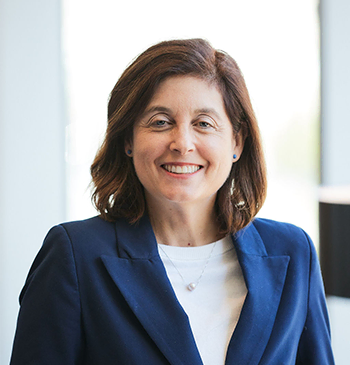
A Boardroom Conversation
Silicon Valley Bank has, as CEO Greg Becker puts it, some of the “coolest” clients of any bank in the world. Located at the hub of California’s technology startup culture, $45 billion asset Silicon Valley Bank has developed a profitable niche catering to entrepreneurs of all sorts. Fifty percent of its loan portfolio is tied to technology and life sciences companies. It also has a small loan portfolio dedicated to the wine industry in Sonoma and Napa Valley. It was one of the top three banks in several categories in a survey of the best commercial banks conducted by CFO Research in the fall of 2016-scoring high marks as a strategic partner that understands customers’ businesses and offers favorable rates and terms on lending, as well as fast and efficient payments processing and transaction services. Bank Director digital magazine recently interviewed Becker about Silicon Valley Bank’s focus on entrepreneurs, technology and life sciences companies.
Q: Was your niche an obvious focus for your bank based on your geography, or was there something more going on?
GB: The company was founded to support innovation companies all the way back to the semi-conductor companies in Silicon Valley, but they also served real estate and other traditional commercial banking industries. Over time, we have become more focused on the innovation economy, whether it’s life sciences companies, venture-backed internet companies or software companies. All those companies that are truly innovative and growing at a rapid pace, we work at supporting those companies.
Q: How did you come to decide the services you needed to provide?
GB: Our products, the lending model, our payments, foreign currency exchange, our ability to help our clients go global, all the products and services are geared to helping innovation companies that are growing at a rapid pace. They need things that are very fast. They need products and services that are scalable. They need to make sure they have an international component to them. Many technology companies go global at a very early stage. We have been doing this for a very long time. We have been supporting companies from early stage to companies such as Dropbox, Square, Fitbit, DocuSign and Zendesk.
Q: But why are you in Israel, Shanghai and Hong Kong in particular?
GB: If you think about innovation, it happens all over the world. It doesn’t just happen in the United States. Increasingly over the last 20 years, Israel has a tremendous amount of technology being developed and as companies grow, they come to the U.S. We have multiple offices in China. Some of these companies stay local and others expand globally. We support our U.S. clients going global. Innovation companies are also starting in these countries. We want to make sure that as larger innovation companies in these markets want to expand to the U.S. and elsewhere, we can support them.
Q: It sounds expensive.
GB: It is. You have to understand how to do it effectively. One of the things that costs a lot is setting up a branch system. We don’t have branches or ATMs or a consumer banking platform. That makes it easier. This hasn’t been an overnight success. We’ve been building it for 35 years.
Q: What are the challenges to serving this market?
GB: You have to understand that these companies operate very fast and change very quickly, and you have to pay attention to their business. When I got into this business 25 years ago, my manager at the time said technology companies change in one quarter the way other companies change in one or two years. You really have to view this as a partnership. They need introductions to other people. They need services that are there exactly when they need them. You have to have products and services that are more innovative. If you are the CEO [of a tech company], you need to feel like you have a banking partner, someone who is there to help give you introductions, give you feedback on how other companies have done it. All those things help improve your probability of success. It’s critically important to us and how we operate.
Q: How did you develop as a fast and efficient payment processor?
GB: We have people in the industry who are real pros and know how to do it. We do leverage outside partners. We view Mastercard and First Data as great partners, and we work with them to come up with solutions that help our clients out.
Q: What advice do you have for other bankers wanting to pursue a niche?
GB: First, you have to have a passion for that industry. You have to have a unique value proposition. What can you do that others can’t do? You have to hire people who love that area of focus. We have people who get excited and energized by meeting entrepreneurs trying to tackle really big ideas. That goes a long way when you have people who think that way.

Join OUr Community
Bank Director’s annual Bank Services Membership Program combines Bank Director’s extensive online library of director training materials, conferences, our quarterly publication, and access to FinXTech Connect.
Become a Member
Our commitment to those leaders who believe a strong board makes a strong bank never wavers.


